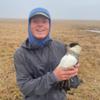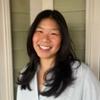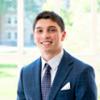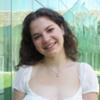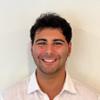
One Post-Grad Semester Down
Many of these recent alumni discovered their passion through internships or learned of career possibilities by talking with professors or alumni. One is pursuing a field of study he’s been interested in since he was a child, and another came to Hamilton intent on one major, but decided on an alternative route.
We checked in with five members of the Class of ’24 pursuing very different courses of study in graduate school to find out how their first semester went.
Majors: Biology and French and Francophone studies
Myles is pursuing a Ph.D. in integrative biology/evolutionary biology at UC Berkeley.
What made you want to pursue a Ph.D. in such a specific area of biology?
Starting in my freshman year at Hamilton, I worked with [Associate Professor of Biology] Andrea Townsend on several projects and with a few seniors on their thesis projects. I worked with crows as well. Andrea’s mentorship certainly solidified for me that I wanted to continue studying ornithology in graduate school.
What led to your interest in that area?
I’ve been interested in birds since I was about 2. I started working at the UC Berkeley Museum of Vertebrate Zoology, which is where I’m now doing my Ph.D., when I was 12, and continued working there until I left for college. During high school, I also worked at some wildlife rehab hospitals, and I also practiced falconry. All of these opportunities further helped me develop my interest in studying birds.
Did any mentors at Hamilton help guide you on that path?
My biggest mentors at Hamilton were certainly Andrea Townsend, who I worked with all four years, as well as [Assistant Professor of Biology] Pete Guiden, who was my thesis advisor and taught me a lot about ecology research. Another person I really look up to is [Assistant Professor of Biology] Ariel Kahrl, who taught my evolution and vertebrate physiology classes, and was very supportive and inspirational.
How has your first semester been? Is it all you hoped for?
My first semester has been chaotic but very fulfilling. I’ve been slowly but surely narrowing down my first project and learning a lot about genomics and phylogenetics. I’ve also been teaching an introductory biology lab course for undergrads at Berkeley. Teaching has been incredibly fun and fulfilling and has really shown me that working in academia is something I’m very enthusiastic about in the long term.
What has surprised you?
One surprise thus far is how much I enjoy teaching. Additionally, I’ve been surprised by the extent of collaboration between my fellow graduate students.
What do you ultimately hope to do after you obtain your Ph.D.?
I don’t entirely know. I think I would enjoy being a professor, especially at either a small school like Hamilton or at a community college, because one of the biggest things I’ve enjoyed about teaching is the rapport I’ve been able to build with my students. After my Ph.D., I will likely pursue a post doc or two, and I would like to seek opportunities abroad, specifically in France or another French-speaking country.
Majors: Biology and Religious Studies
Shen is pursuing an accelerated BSN (bachelor’s in nursing) at Northeastern University.
What made you want to pursue a BSN?
I always knew I wanted to be in the medical field and work as a provider in some capacity so I was on the Health Professions track as soon as I got to Hamilton. Throughout my years at Hamilton, I found that I grew to be a person who others could trust and gravitated toward leadership roles. My experiences in those roles made me confident in my ability to connect with patients and learn how I could best help them and advocate for them.
What led to your interest in this area?
It wasn’t until the fall semester of my senior year that I knew I wanted to specialize in women’s health. I volunteered with Planned Parenthood the summer before my senior year, and realized the disparities in healthcare and the criminal lack of research there is on women’s health. After doing more research for my senior thesis project where I discuss healthcare disparities among minority patients, I became even more passionate to join a community set on giving compassionate, equal, and exceptional care to all patients.
Did you have any mentors at Hamilton that encouraged you?
One of the things I will remember the most about Hamilton is the amount of support I received throughout the whole process! There were so many people who encouraged me along the way, making time in their busy schedules to meet with me to discuss schools, essays, and letters of recommendation, and give me advice [Associate Professor of Psychology] Keelah Williams, [Visiting Assistant Professor of Instruction for Biology] Beth Eischen, [Assistant Professor of Biology] Ariel Kahrl, and [Director of Health Professions Advising] Courtney Hance.
How has your first semester been? Is it all you hoped for?
My first semester at Northeastern has been amazing! I just finished my first clinical experience on a maternity unit in a hospital Northeastern University partners with to let students work alongside other medical professionals. It has been a rewarding experience, allowing me to learn a great deal while providing compassionate care and support to new mothers, their babies, and their families. It’s enabled me to advocate for patients, work with other medical providers as a team, and grow my leadership skills.
What has surprised you?
I am pleasantly surprised by how seamless the transition from Hamilton to Northeastern was. I feel as though Hamilton prepared me well for the academic and social transition from undergrad to a graduate program. The work is challenging but the time management, confidence in public speaking, and leadership I developed at Hamilton have been incredibly helpful.
“ ... Hamilton prepared me well for the academic and social transition from undergrad to a graduate program. The work is challenging but the time management, confidence in public speaking, and leadership I developed at Hamilton have been incredibly helpful.
Majors: Computer Science and Physics
Scoleri is pursuing a master’s degree in financial engineering at Stevens Institute of Technology.
What experiences at Hamilton made you want to pursue a master’s in financial engineering?
During my sophomore internship, I was introduced to quantitative finance. In my junior year, a Hamilton alum named Andrew Madigan ’14 helped me find an internship where I developed an automated trading algorithm. That summer experience really solidified my desire to pursue this field and eventually led me to apply to master’s programs in quantitative finance.
What led to your interest in this area?
My interest in quantitative finance began through my internships, where I saw an interesting intersection of math, computer science, and finance. Creating the trading algorithm made me realize how much I enjoyed developing strategies and trying to find a successful one.
Did any Hamilton mentors help guide you?
Yes, I was fortunate to have several mentors at Hamilton including the Men’s Lacrosse Coaches Scott Barnard and Cam Stone, Andrew Madigan ’14, Professor of Physics Gordon Jones, and [Associate Professor of Computer Science] Darren Strash.
How did your first semester go? Was it all you hoped for?
My first semester has been fantastic. I took classes like stochastic calculus and quantitative hedge fund strategies, which I thoroughly enjoyed. Learning about these topics further strengthened my desire to pursue this career, and living in Hoboken has been a great experience as well.
What has surprised you?
I was surprised by how well Hamilton prepared me for the master’s program. The rigorous academic curriculum made the transition much smoother than I had expected.
What do you ultimately hope to do after you obtain your degree?
After obtaining my master’s, I hope to start a career in quantitative finance, whether that involves developing code or creating new trading strategies. I’m excited to start my career in this challenging field.
Majors: Psychology and Art
Luxton is pursuing a master’s degree in art therapy at Drexel University.
What led you to pursue a master’s in art therapy?
My experience in my Introduction to Drawing class my freshman spring with [Professor of Art] Katherine Kuharic was a big influence on my decision to pursue my master’s in art therapy. I remember a conversation I had with her then, where she suggested I major in art and that I should check out art therapy. I had never heard of the profession before then, but this conversation led me to research on the career path, and I consequently became passionate about pursuing art therapy.
What sparked your interest in that area?
My freshman year at Hamilton, I was initially a neuroscience major. I’ve always really liked the brain and how it works, but I realized that the “science-y chemistry” parts of the brain were not what I was actually interested in. Instead, I found myself interested in the mental psychology aspect of the brain and how individuals manifest with different cognitions and behaviors based on genetics, culture, environment, etc. Basically, through the classes I took at Hamilton, I learned that I wanted to pursue counseling in general, and so art therapy was a good branch off of my original interest that combined with my creative side.
Did any mentors help guide you?
Professor Kuharic was a big influence in my progression as an artist and student at Hamilton. She gave me the confidence to believe I could be successful as an art major, challenged me as an artist, and pushed my creative ability further. She is extremely knowledgeable and talented, and I encourage people to take an art class with her if at all possible! I’ve found many people are scared of art classes because they’re “not good at it.” You do not have to be “good” at art in order to create and enjoy it – sometimes the process is more important than the product. Professor Kuharic fosters an amazing artistic environment that will help people of any artistic level to develop skills and processes that truly help you enjoy art.
How has your first semester been at Drexel? Is it all you hoped for?
It has so far been very beneficial to my development as an artist, therapist, and art therapist. It’s definitely not completely what I was expecting, but that’s partially because I didn’t really know what to expect. There are a lot more facets to an art therapist and their knowledge than I initially thought, and so I am learning a broad and immense amount of information. One of the components of the program I really appreciate is the clinical experience built into the curriculum. Consequently, I have been in a school one or two days a week to observe and facilitate art activities with teenagers as well as elementary-aged individuals. This aspect of the program has so far been very beneficial to developing my communication abilities and therapeutic skills, and it has been quite fun as well!
What has surprised you?
One of the things that has surprised me is the type of language I have been taught to use through this program. There is an emphasis on teaching the pitfalls in language use that can cause pain or oppression on individuals. This has been extremely interesting to me, as there are words that I would have never myself realized have underlying negative connotations, and I have learned an immense amount of conscious and considerate language as a result.
What do you ultimately hope to do after you obtain your master’s?
I hope to be a therapist! My degree will allow me to apply to be a Licensed Professional Counselor (LPC) in PA, as well as a registered art therapist (ATR-BC), so it is up to me what type of therapy I use in my practice. I do value the nature of general talk therapy, and so I hope to join a therapeutic practice where I mainly utilize talk therapy, with implementation of art therapy when wanted/needed by the client.
Anything you’d like to add?
This program has been quite a switch up from the learning environment at Hamilton. Although my classes still value the importance of readings, papers, and exams to facilitate learning, there has also been a large emphasis placed on learning through art and creation. It has definitely made the school work a lot more enjoyable, because half the time I can draw or paint for homework! It allows me the freedom to explore and expand my artistic practice, while at the same time working toward my degree, so it is truly the perfect combination of psychology and art for me.
Major: Government
Tek is pursuing a master’s degree in professional studies/global affairs, human rights concentration at NYU.
What made you want to pursue a master’s in global affairs, concentrating on human rights?
A specific experience that really pushed me toward this field was an internship I did the summer after junior year at IRIS (Integrated Refugee and Immigration Services). It was during this internship that I got first-hand experiences from people seeking refuge from all over the world. That was the first time that I experienced a truly global world and knew that I wanted to learn more of the ins and outs of how I can involve myself in the global order.
What led to your interest in that area?
The variety of classes across many subjects that really shone a light on global issues in human rights worldwide. This includes my classes in anthropology, sociology, government, literature, and even philosophy. All of these subjects allowed me to gain perspective into different cultures and ideologies while maintaining respect for everyone. It was only thanks to Hamilton’s open curriculum that I got the opportunity to have these rich experiences.
Who are mentors that helped guide you on this path?
My parents have been good mentors for me throughout my life and I would rely on them for advice. I also got a lot of help from my professors. My advisor in particular, [Professor of Government] Peter Cannavo, really helped me center myself and hearing his journey inspired me. Another mentor was [Associate Professor of Government] Heather Sullivan. It was through her classes I took in my junior and senior year focusing on Latin America that I realized I had a real interest in the systematic issues that can cause a deterioration of human rights worldwide. Finally, although it might be cheesy, I think the mentors I learned the most from were my fellow students at Hamilton.
How has your first semester been? Is it all you hoped for?
I just finished up my first semester strong a couple weeks ago, and it has been absolutely amazing! One of the best parts of continuing my education was having the opportunity to really dive into one subject that initially captured me in undergrad, but now I get to explore it in depth with my peers who are as interested in the same field. I continue to realize that despite everything I think I know, there will always be more to learn and grow with.
What, if anything, has surprised you?
Something that really surprised me was my fellow students in my master’s program. I am in constant awe of their intellect and knowledge, and I feel like I learn from them as much as the curriculum itself. I am surrounded on a daily basis by people who are extremely passionate in the field of global affairs, and it is not limited to just the classroom. I can’t count the number of times we would finish class only to go get drinks and discuss the lessons together again, not even as a way of studying, but because we are genuinely so interested in the subject even outside of just academics.
What do you ultimately hope to do after you obtain your master’s?
I’m still unsure of any specific path, and I feel like that’s ok. I believe that obtaining my master’s will open many opportunities for me, and I’m excited to take my time finding out what I want to do. I think my immediate plan would be to [work] in advocacy or academic research, but I’m also interested in pursuing careers in international law for the long run where I might be able to continue attempting to make a difference on a global level. One thing I’m considering is going to law school after a few years of real-world experience. I think my dream would be to become a diplomat one day, but ultimately, I can’t tell the future.
“It was only thanks to Hamilton’s open curriculum that I got the opportunity to have these rich experiences.
Where Are They Now?
Here’s a sampling of where the Class of 2024 is pursuing advanced degrees:
- University of Texas (MS, Computer Science)
- Fordham University Law School (J.D.)
- Tufts University Cummings School for Veterinary Medicine (MS, Animals and Public Policy)
- Parsons School of Design, The New School, Paris (MA, Fashion Studies)
- University of Virginia Frank Batten School of Leadership and Public Policy (MPP)
- Johns Hopkins University (ScM, Genetic Counseling)
- University of Pennsylvania School of Engineering and Applied Science (MEAM)
- University of Edinburgh (MSc., Modern & Contemporary Art: History, Curating and Criticism)
- Vanderbilt University (MS, Finance)
- University of Massachusetts (Ph.D., Chemistry)
- University of Chicago Harris School of Public Policy (MPP)
The Class of 2024

What’s Next: The Class of 2024
Members of Hamilton’s Class of 2024 have walked off the Commencement stage, canes in hand, and out into the world ready to make a difference.

2024 Bristol Fellows to Explore Orchid Culture, the Potential of Trash
Ann “Annie” Kennedy ’24 and Luis Felipe López Cruz ’24 received Hamilton’s prestigious Bristol Fellowship. The program is designed to “encourage discovery of self and the world, a greater appreciation and understanding of people and culture, and to enable individuals to act on great ideas through independent study projects.”
